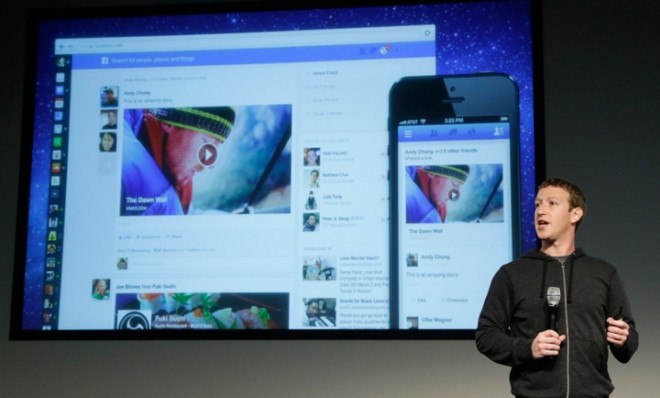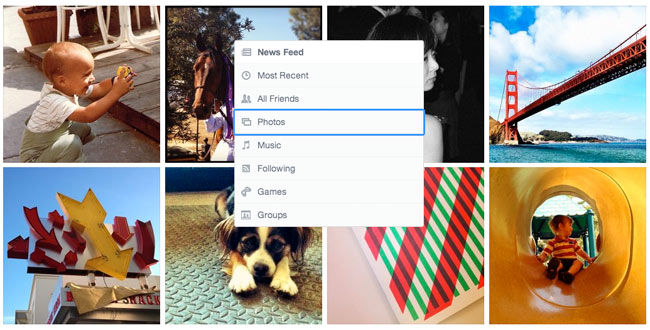How Facebook's overhaul helps your business — and hurts it
Many marketers are salivating over the revamped news feed. But not so fast...

A free daily email with the biggest news stories of the day – and the best features from TheWeek.com
You are now subscribed
Your newsletter sign-up was successful
Mark Zuckerberg and a cast of designers and engineers debuted sweeping changes to Facebook on Thursday, in what's been billed as the most dramatic overhaul to the social network in years. The new image-heavy Facebook puts big, high-res photos front and center, retooling an otherwise ugly, text-laden interface into something more modern — a next-gen Facebook with design nods to Tumblr, Instagram, and Pinterest. (Take a visual tour of the changes here.)
On its face, marketers love it. The new Facebook gives business an alluring new canvas to play with — digital billboards up and down a billion news feeds. "Historically, advertisers want really rich things like big pictures or videos and we haven't provided those things," said Zuckerberg in a Q4 earnings call. Now that's no longer the case.
Indeed, the renewed focus on photo and video "reduces friction" for businesses, Dan Slagen, SVP of marketing at Nanigans, tells Mashable. "You are able to take one message and put it in the mind of a consumer and you are really able to drive that message home." Imagine if Nike could advertise on Facebook using a large, magazine-style photo for its newest FlyKnit running shoe. A well-designed ad is simultaneously less intrusive and harder to ignore — a boon for marketers, who now have more real estate to flex their creative muscle.
The Week
Escape your echo chamber. Get the facts behind the news, plus analysis from multiple perspectives.

Sign up for The Week's Free Newsletters
From our morning news briefing to a weekly Good News Newsletter, get the best of The Week delivered directly to your inbox.
From our morning news briefing to a weekly Good News Newsletter, get the best of The Week delivered directly to your inbox.
That said, the new Facebook could pose a problem for established businesses already running pages of their own. One of the more exciting new features revealed by Zuckerberg is the ability to apply feed filters, which sift and organize content according to what you, the user, want to see.

Click the Photo feed, and your screen populates with Instagram shots and photo albums. Clicking the Music feed reveals music videos by bands you've liked, upcoming concerts, and what your friends are listening to on Spotify. Games, Videos, and Friends-only are similarly linear. Zuckerberg says these new filters transform Facebook into your "personalized newspaper," and feeds will stack themselves automatically depending on which ones you use the most. In Facebook's mind, targeting the right eyeballs will be easier for businesses: If you run a record label, purchase ad space in the Music feed. If you're Vogue, the Photo feed probably makes the most sense.
But consider this: The average Facebook user could simply ignore ads by sticking to their "Friends-only feed," effectively muting the brands they've already chosen to follow. A business could still choose to advertise there, but it then runs the risk of interrupting what will probably be perceived as a safe, ad-free space. No self-respecting brand wants that. And there's a strong possibility that a large swath of users will spend most of their time hanging out behind the velvet rope of the Friends-only feed.
If you run a small business or an existing page that relies on Facebook to reach customers, keep this in mind. "People can skip content from a business if they want to," Sarah Carter, the GM of social business Actiance, told VentureBeat. "The flip side is that the new design is meant to get people browsing for longer, and improve the overall Facebook experience. So if a business is able to effectively market to its audience on this channel, using content that is visual, relevant and spoken in an authentic voice, the [return on investment] should be greater."
A free daily email with the biggest news stories of the day – and the best features from TheWeek.com


